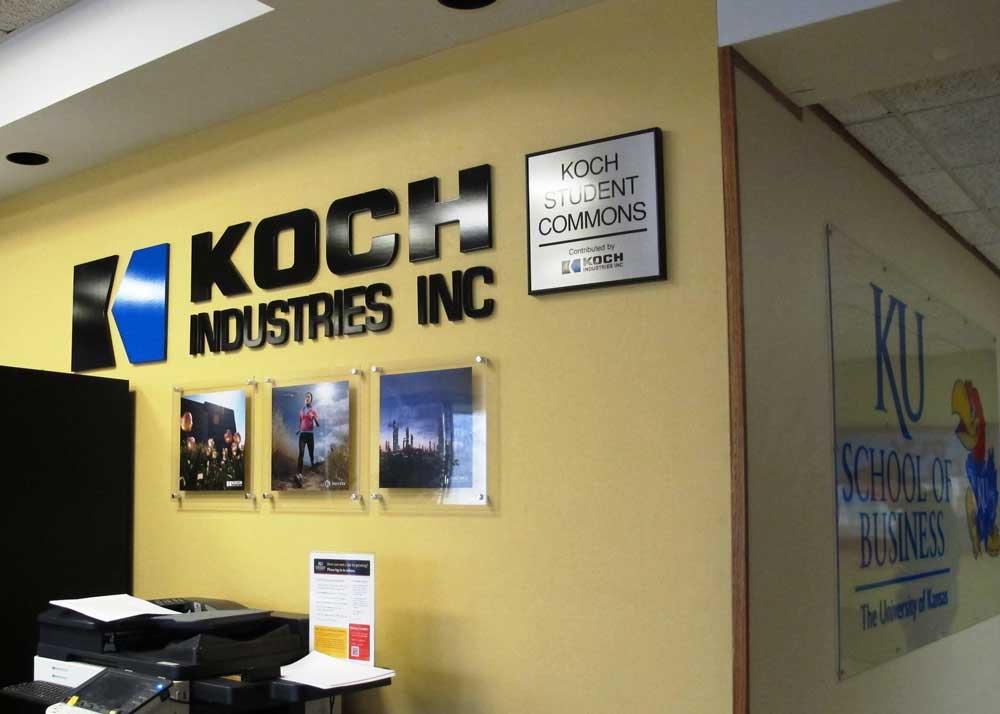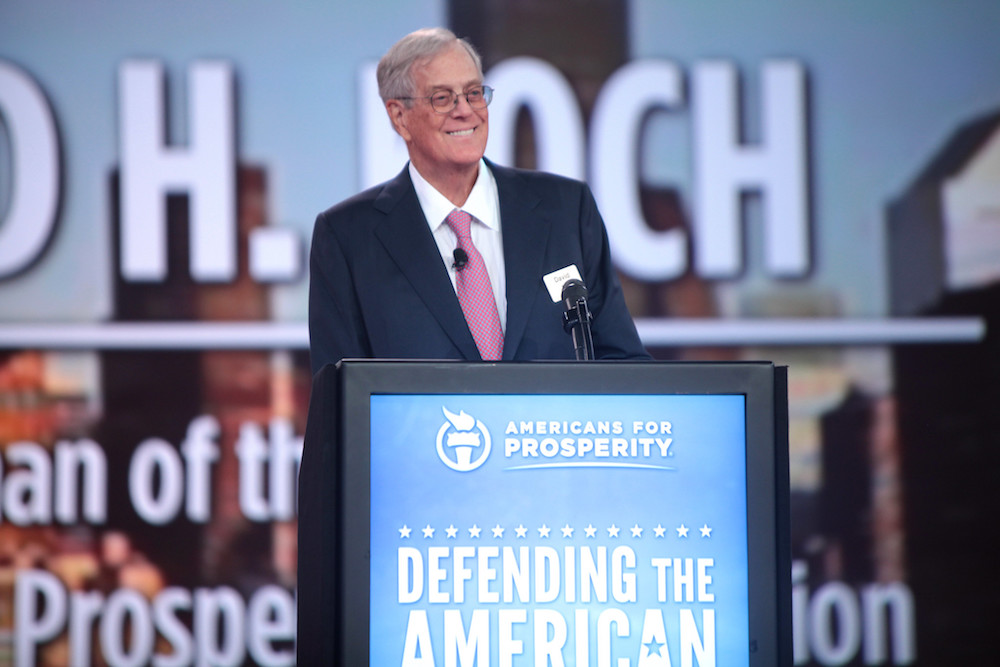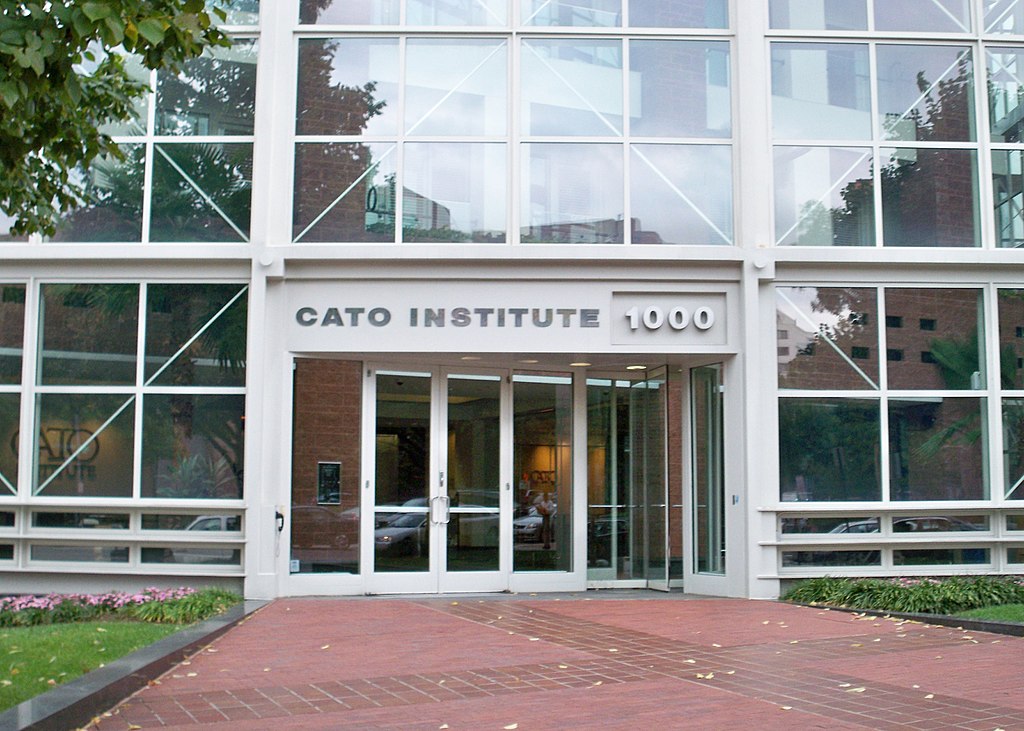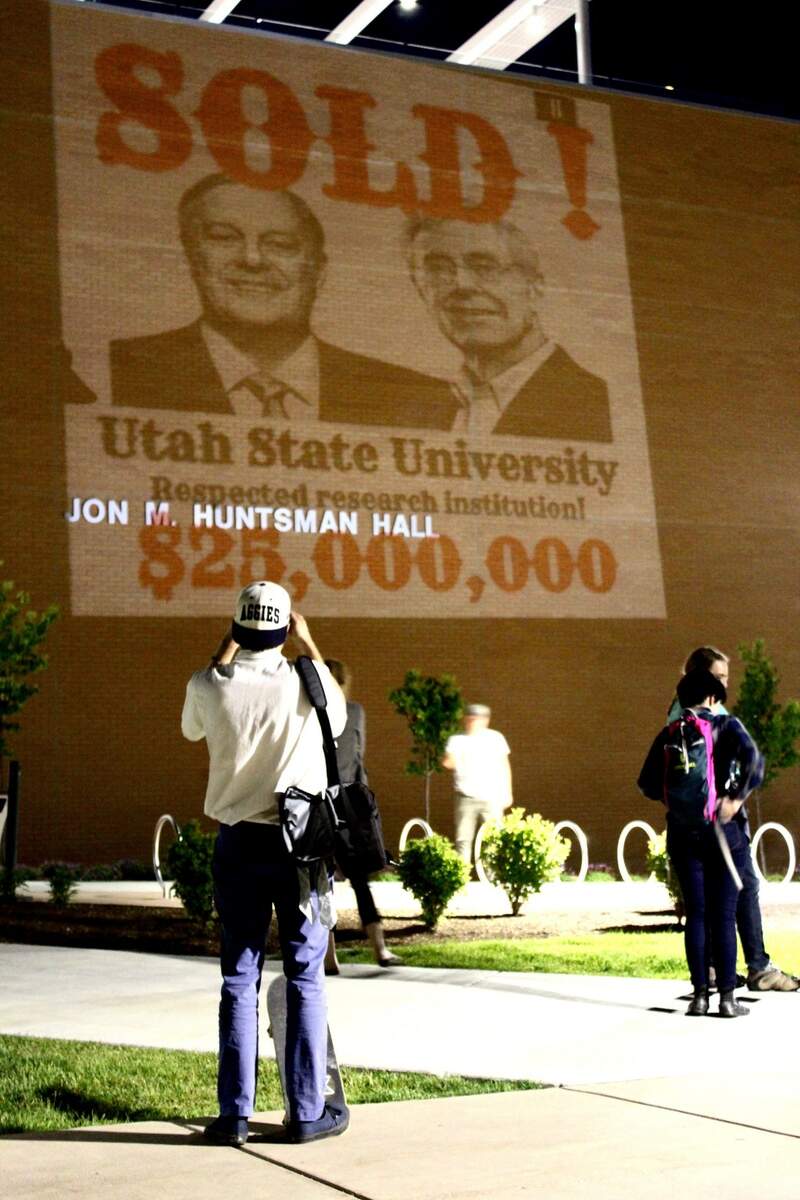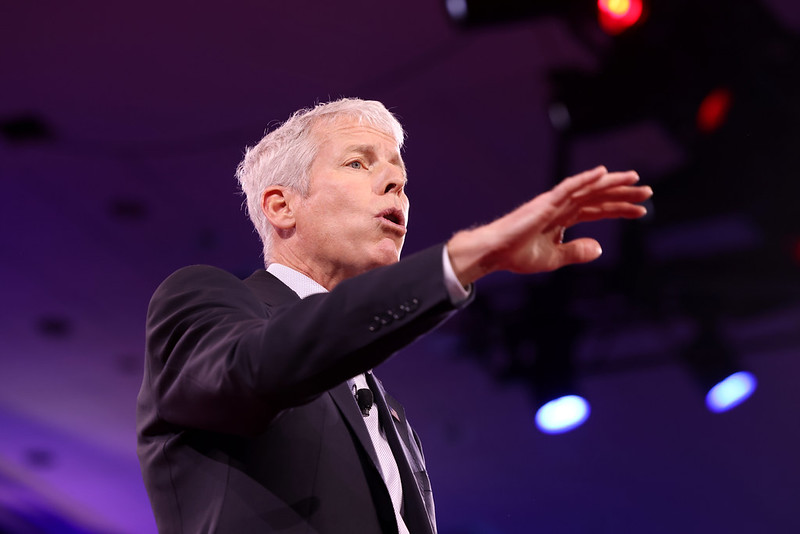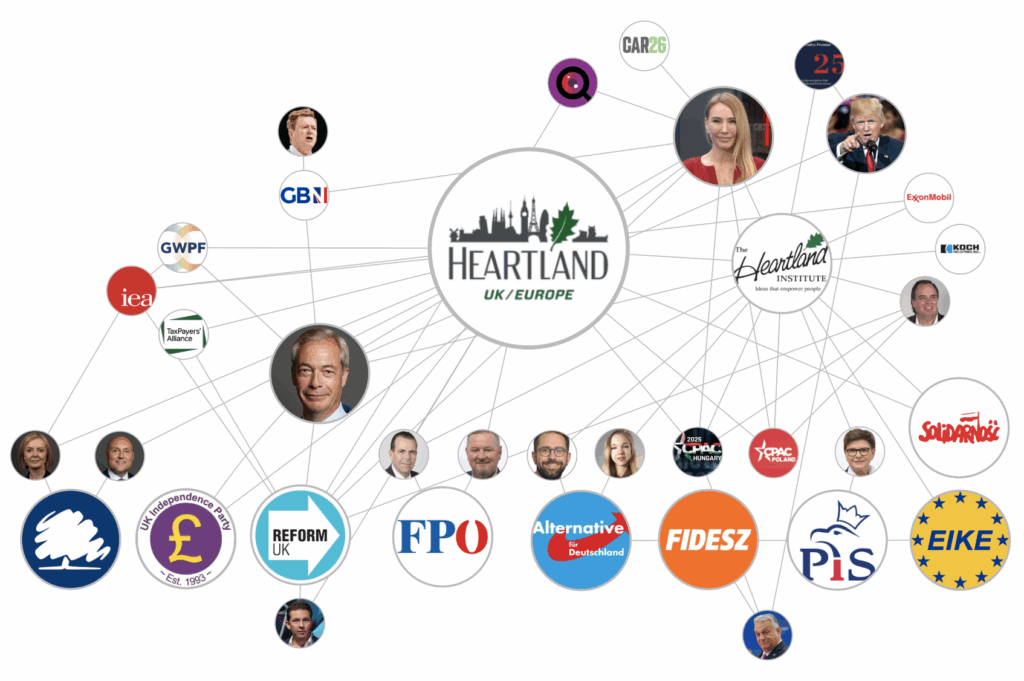Back in 1996, the president of the Charles Koch Foundation laid out a blueprint for the Koch network’s goals of social transformation — a three-tiered integrated strategy to roll back government regulations, promote free market principles, and, in doing so, to protect the industries that turned the Koch brothers into billionaires.
More than two decades later, that blueprint is still being followed in a broad-scale effort to serve the Kochs’ free-market libertarian ideology, to prop up the oil and gas industries that pad their fortunes, and to forestall any political action on climate change that they believe would threaten their bottom line.
In an article for Philanthropy Magazine, Richard Fink, who led the Charles Koch Foundation and served as executive vice president of Koch Industries, called the Koch network’s integrated strategy their “Structure of Social Change,” writing:
“At the higher stages we have the investment in the intellectual raw materials, that is, the exploration and production of abstract concepts and theories. These still come primarily (though not exclusively) from the research done by scholars at our universities …
In the middle stages, ideas are applied to a relevant context and molded into needed solutions for real-world problems. This is the work of the think tanks and policy institutions …
But while the think tanks excel at developing new policy and articulating its benefits, they are less able to implement change. Citizen activist or implementation groups are needed in the final stage to take the policy ideas from the think tanks and translate them into proposals that citizens can understand and act upon.”
The Kochs’ investments in all three “stages” are still impacting public policy debates, as evidenced in documents collected by KochDocs, a newly launched clearinghouse for “hard to find documents about Charles Koch and his agenda.”
And these investments are paying off. Charles Koch told a gathering of donors in 2018 that “We’ve made more progress in the last five years than I had in the previous fifty,” as Christopher Leonard reported in the just-published book Kochland: The Secret History of Koch Industries and Corporate Power in America.
Perusing the KochDocs archives with Fink’s “Structure of Social Change” in mind, you can see how this integrated, multi-tiered strategy actually works, particularly in the context of energy and environmental policies that could threaten the Kochs’ main business of refining oil.
The Ground Game: Citizen Activists and Implementation Groups
David Koch speaking at the 2015 Defending the American Dream Summit at the Greater Columbus Convention Center in Columbus, Ohio. Credit: Gage Skidmore, CC BY–SA 2.0
By almost any measure, the “final stage” that Fink refers to — the “citizen activist and implementation groups” — is anchored by Americans for Prosperity, the Kochs’ sprawling 501(c)4 advocacy group, which Harvard and Columbia University researchers Theda Skocpol and Alexander Hertel-Fernandez described in 2016 as “ the 800-pound gorilla of the reorganized U.S. conservative universe.”
Americans for Prosperity (AFP) today boasts of having more than 2.3 million members, with operations in 35 states. Though the organization presents itself as grassroots, and reflective of local members’ interests, Skocpol and Hertel-Fernandez describe how the national office hand-picks state staffers, and how policy priorities emerge from the same central fountainhead.
Skocpol and Hertel-Fernandez write that:
“Overall, AFP exhibits an ideal combination of autonomy from, and embeddedness within, GOP circles, a unique situation that helps the Koch network serve as an ideological backbone and right-wing force for today’s Republican Party. This happens not only because the Koch network throws a lot of money around, and not even because it threatens politicians with sanctions if they stray from the Koch agenda… Rather, the most pervasive and subtle form of leverage by the Koch network on the Republican Party happens because of the flow of people back and forth between the two operations.”
In effect, through the structure of the organization, AFP members and — more importantly — AFP-affiliated politicians, are exposed to the Koch network’s preferred political agenda, and receive clear policy direction and talking points from the national offices.
Frequently, these come in the form of “Need To Know” briefs from the Americans for Prosperity Foundation, many of which are available on KochDocs.org.
Consider this 2012 “Need to Know” brief on Renewable Portfolio Standards, a policy prescription loathed by the Koch network for its free market–busting mandates, and also certainly because it promotes renewable energy alternatives to Koch Industries’ business interests.
This AFP Foundation brief helped set up years of state-level GOP opposition to renewable portfolio standards (RPS), aided by a “model bill” to repeal RPS laws, drafted in 2012 by the Koch-funded American Legislative Exchange Council (ALEC). Over the next few years, state legislators in at least a dozen states attempted to roll back or repeal their states’ respective renewable energy and portfolio standards.
Translating Ideas: Think Tanks and Policy Institutions
The “Need To Know” briefs also show how the Koch network connects the middle and bottom tiers of their “structure for social change.” Pay close attention to the citations, and you’ll see the fruits of the Kochs’ investments in the middle stages — the “think tanks and policy institutions,” which provide reports and analyses to support the pro-fossil fuel, free market policies.
Seven of the 10 endnotes on the RPS “Need To Know” brief come from the Institute for Energy Research, a Koch-funded Washington D.C. think tank that is run by a former Koch Industries lobbyist. Another citation comes from the Cato Institute, a libertarian think tank founded by Charles Koch and funded extensively by Koch family foundations.
Endnotes from the Americans for Prosperity Foundation’s 2012 “Need To Know” brief on renewable portfolio standards.
This is hardly unique.
A 2014 “Need To Know” brief on greenhouse gas regulations quotes a representative from the American Council for Capital Formation (ACCF), a Koch-funded free market think tank. Another on cap and trade cites an ACCF study and quotes Cato Institute fellows. Yet another from 2016 on carbon taxes prominently features a study by the National Association of Manufacturers (NAM), on whose board sits a Koch Industries lobbyist and in which Koch Industries is likely an influential member. The carbon taxes brief also promotes an article by Michael Bastasch (who recently had been in the Koch Internship Program) for the Daily Caller News Foundation, which is primarily funded by Koch foundations.
These are just a few of the dozens of obvious examples found among the KochDocs archive which reveal how the Koch network leverages its investments in think tanks and policy institutions to maximize the effectiveness of its ground game groups like Americans for Prosperity.
Entrance to the Cato Institute in Washington, D.C. Credit: Matthew G. Bisanz, CC BY–SA 3.0
Intellectual Raw Materials: Universities and Academics
What about the upstream investments in academia and universities? Check out the audio and transcript from this 2014 Koch Freedom Partners donor summit session on “Leveraging Science and the Universities.”
To start the panel, Kevin Gentry, the Vice President of the Charles Koch Foundation, boasts that the network’s work with universities is “of significant competitive advantage” and has “been a great investment for a number of years.” Gentry offers that this work leveraging academia “predates significantly our investment in the electoral process, and the product of our work is now seen in 400 colleges and universities.”
Some of these schools have produced great yields of the “intellectual raw materials” that Fink originally described. The Mercatus Center at George Mason University is the crown jewel of the Kochs’ academic program, with the “largest collection of free market faculty that exists anywhere at any university anywhere in the world” and having put out 1,600 studies “to advance economic freedom,” as then-Executive Director Brian Hooks said in the 2014 panel discussion. “What that means is that that these guys are producing research that groups in this network can rely on to advance economic freedom every single day.”
Hooks added, “[t]hanks in large part to the investment that this network has made, we have founded new university research centers around the country. We can take that model and expand economic freedom [and] the freedom movement.”
A projection of Koch investments at Utah State University on a campus building. Credit: UnKoch My Campus/Greenpeace
Another such center is the Center for Growth and Opportunity based in the Huntsman School of Business at Utah State University (USU). The center opened in 2017 with a $25 million gift from the Charles Koch Foundation. However, the Koch network had been investing in the school for a decade already, as investigative reporters Alison Berg and Carter Moore recently examined for the school’s student newspaper, the Utah Statesman.
Randy Simmons, the “Charles G. Koch Professor” at USU who has received a supplemental salary stipend from the Koch foundations, is a leading academic opponent of wind and solar energy. Simmons has published several academic reports attacking renewable energy and supportive policies, and these reports have been regularly deployed by Koch-aligned groups in both the think tank and citizen activist tiers of the Koch’s structure for social change.
In particular, Simmons has led the publication of a number of reports bashing renewable energy standards, including ones used by state-based groups fighting the standards (as described above) in Kansas, Ohio, and North Carolina.
According to Berg and Moore’s reporting, the $25 million gift in 2017 “supercharged” the Koch influence on campus, and gave Simmons a team of ideologically aligned colleagues.
“Based on public documents and interviews with those involved, the university used the money to hire 13 of 19 staff members from a prominent libertarian think tank that was previously independent of the university, Strata Policy, and place them at the university’s new think tank, the Center for Growth and Opportunity (CGO). Strata has backed conservative positions on issues such as fossil fuel dependence, public land management and signed a letter in support of Donald Trump’s controversial downsizing of national monuments.”
There are plenty of other examples. Another program that has benefitted from Koch investment is the Department of Economics at Florida State University (FSU). The school found itself in some controversy after an internal memo came to light, revealing that the Koch foundations money came with plenty of strings attached:
“Constrained hiring: As we all know, there are no free lunches. Everything comes with costs. In this case, the money for faculty lines and graduate students is coming from a group of funding organizations with strong libertarian views. These organizations have an explicit agenda. They want to expose students to what they believe are vital concepts about the benefits of the market and the dangers of government failure, and they want to support and mentor students who share their views. Therefore, they are trying to convince us to hire faculty who will provide that exposure and mentoring. If we are not willing to hire such faculty, they are not willing to fund us.
The fallout led to a comprehensive internal review at the university, and a very critical report from an Ad Hoc Committee of faculty members, who expressed concern about the “outside control” and “undue influence over the academic endeavors of the FSU economics department.” The memo’s publication has not ended the relationship, however. The Charles Koch Foundation gave another $800,000 to FSU in 2016, largely to support the L. Charles Hilton Jr. Center for the Study of Economic Prosperity and Individual Opportunity.
George Mason University has ordered an investigation after documents revealed that the Koch Foundation had been given a voice in hiring and firing professors https://t.co/x3Cb7x2aOu
— The New York Times (@nytimes) May 2, 2018
Today, Adam Millsap serves as Assistant Director of that center. Millsap has risen as an academic through the Koch-funded higher ed ecosystem, and spoke on that same 2014 panel on “Leveraging Science and the Universities.” There, Millsap described his role in cultivating a “new talent pipeline” for all levels of the Koch network, and how the Koch-funded programs — like the Mercatus Center and the Institute for Humane Studies — trained him to do so.
Millsap also described how academics should use all “viable mediums,” including “major Republican blogs, op-eds, and policy briefs” to spread ideas to a broader, more popular audience.
Following his own advice, earlier this year, Millsap published a commentary on Forbes.com, headlined: “Green New Deal’s Plan For Planes, Trains, And Automobiles Won’t Work.”
The piece, by design, was promoted widely from all three tiers of the Koch network.
Main image: Koch Student Commons, on the ground floor of the University of Kansas’ business school. Credit: Frank Morris/KCUR, Public Domain
Subscribe to our newsletter
Stay up to date with DeSmog news and alerts


